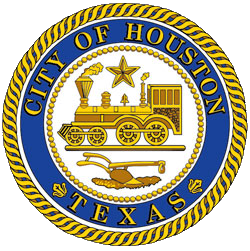HOUSTON — The Houston Health Department (HHD) will seek to lessen the burden that asthma places on the lives of about 364,000 Houstonians, Mayor Sylvester Turner and public health professionals announced Thursday.
The mayor and the agency, led by Director Stephen Williams, also announced an improved approach to monitoring industrial releases of benzene, a pollutant that can cause cancer.
Three new HHD initiatives aim to increase the number of people with asthma under medical care and help people better control their disease and reduce related illnesses, emergency room visits and hospitalizations.
“Through new asthma services, we will enable patients to live healthier lives,” Mayor Turner said.
HHD secured a $2.6 million grant from the Centers for Disease Control and Prevention to fund the asthma service enhancements. Houston is the first and only city to receive the grant, previously reserved for states.
The department also announced progress on benzene detection.
The Rapid Alert Benzene Information – Time Sensitive system now compiles benzene concentration data from fixed monitors around Houston and automatically emails health department staff when levels exceed routine readings. Previously, the staff had to manually evaluate spikes in benzene levels.
“The quicker we identify benzene releases the faster we put a stop to them,” said Dr. Loren Hopkins, HHD’s chief environmental science officer. “If we detect benzene peaks, we initiate investigations with mobile monitoring to pinpoint the source so responders can stop the release.”
The three asthma initiatives are the Houston Asthma Air Aware Day Alert System, Environmental Mobile Unit project and Houston Asthma Control through Evidence-based Interventions Project.
An estimated 300,000 adults and 64,000 children in Houston endure the difficulties posed by asthma, a lung disease that causes repeated episodes of wheezing, breathlessness, chest tightness and nighttime or early morning coughing.
People can control the disease by taking medicine, either for quick relief or long-term control. They also can avoid the triggers that can cause an attack such as mold, tobacco smoke, dust mites, outdoor air pollution, cockroach allergen and pets.
The department developed the Houston Asthma Air Aware Day Alert System to inform people when outdoor air conditions match days when Houstonians have experienced ambulance-treated asthma attacks.
AlertHouston now includes Asthma Air Aware Day alerts. People can sign up to receive alerts at www.houstonemergency.org/alerts. The department also posts the alerts on its website www.HoustonHealth.org and social media platforms including Facebook and Twitter.
The Environmental Mobile Unit will frequently visit schools to provide asthma monitoring and self-management education to children with asthma. The children’s caregivers also will receive home visits by community health care workers who provide health education and identify and reduce asthma triggers.
Another project will help the department to mobilize and lead a partnership in a strategic plan to improve local asthma control services. The collaborative will analyze data to monitor and evaluate the expansion and improvement of referral systems among health care agencies and social service providers.
Partners will include the Texas Gulf Coast Asthma Coalition, Houston Independent School District, Texas Children’s Health Plan, Harris Health System and Rice University.
